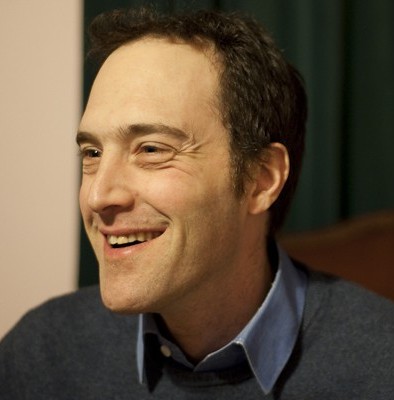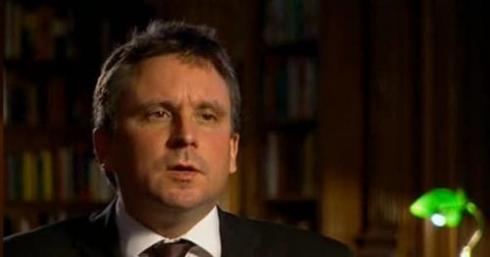Motions about Jewish issues are standard at UCU Congress. This year saw another attempt to undermine protection for Jews from the kind of antisemitism which disguises itself as anti-Zionism. The motion – 57 of the Business of the Equality Committee – was about free speech and the IHRA working definition of antisemitism. It began “Congress notes UCU’s exemplary anti-racist work”, which was strange in the light of what followed.
Before I report how the motion went down in Congress I’ll indulge in a bit of free speech myself.
The first thing to say is that there was no motion that UCU adopt the working definition, and yet UCU was pre-emptively trying to ban it. I was aware of this motion because our branch officers tried to push it through in early March. Amazingly they found it appropriate to bump it from the middle to the end of the meeting [see update below]. I believe the presence of three of us in particular, sitting at the front (and refusing to be in the officers’ Stand Up to Racism photo) caused this awkwardness, since the chair observed in a non-welcoming way that the antisemitism motion was the only reason we had decided to attend. In my case that is absolutely correct – and here is why he is responsible.
Jewish-related motions are instigated by officers controlling some branches. The pretext of this one is free speech, but the same campaigners have been undermining free speech for years in the form of the boycott campaign against Israeli (and only Israeli) academia. Of course I find fault with that on grounds of relevance and sinister priorities, but there’s more to it. Their hostile interest in Jewish issues is so bizarre (compare it with all the motions warmly supporting other equalities groups) that any trust I may have once had in them on the bigger issues and motions is a distant memory. They didn’t even circulate the IHRA definition of antisemitism they expected us to condemn in 90 seconds.
Higher education workers who don’t feel involved in this matter or who don’t care about the labour movement just laugh at this weakness of UCU’s. I find it appalling though, because it means that in a rushed meeting cluttered with another Jewish-related motion, the text received a day in advance signalling that the role of members is not to think very hard, our union is actually giving us extra work to do. Because when you can’t trust your leaders fact-checking and scrutiny is what you have to do. And if there’s no time to do that extra work, then voting becomes problematic – so why bother attending when it’s so clear that the officers view members as fodder. Considering the attendance was short of quorate at that meeting, I doubt I’m the only person to feel this way.
In case I’m misunderstood, I’m coming at this as a non-nationalist and volunteer UCU department rep. I’m in favour of a working definition of antisemitism and I have little patience with objections to this IHRA one since it’s full of ‘may’ and ‘might’ and ‘taking into account the overall context’. In other words, it provides some valuable pointers to the forms contemporary antisemitism can take, and leaves the rest up for consideration and debate. So if it has been wielded by Jewish-interest groups (badly scared by the malignancy of the loudest Palestine solidarity campaigning in this country) to try to shut down events where Israel is criticised, then that is regrettable and to be opposed in its own right. But I can’t see that it is the fault of this highly qualified definition. It’s the venue authorities who are responsible for distinguishing between free speech and racism. And Palestine solidarity campaigners need to be better.
At Congress Sarah Annes Brown, professor of English Literature at Anglia Ruskin (who I think holds a less favourable view of the working definition than mine) spoke against the motion. Her statement:
“I acknowledge that there is some evidence of the IHRA definition being invoked in the context of preventing some university based events going ahead. In the interests of free speech it would be reasonable to conduct research about this.
However I would like Congress to consider whether it is necessary or desirable to disassociate itself from the definition completely in order to do this, to make it anathema in the way the QUB amendment suggests.
This whole issue has been a very polarising debate for years. I’d like to urge more nuance and a focus on what is really important here – protecting free speech. I quite understand why people have misgivings about the definition and some of the ways it seems to have been used. But it concerns me when people accuse those who think differently of acting in bad faith, as seems to be the case in a letter in the Guardian signed by many academics.
‘It is with disbelief that we witness explicit political interference in university affairs in the interests of Israel under the thin disguise of concern about antisemitism.’
The definition has been backed by Jeremy Corbyn and has been adopted by the NUS and the Union of Jewish Students. The government’s adoption has been welcomed by mainstream Jewish groups such as the Community Security Trust and the Board of Deputies. That’s not a reason for embracing it or ignoring any possible bad impacts, but it might perhaps give pause before an absolute repudiation.”
Update: A spiteful amendment (57A2) to the motion referred to Ronnie Fraser’s earlier legal case against UCU as “spurious accusations of antisemitism”. This prompted another delegate to speak up in objection to that, since she found it a disingenuous and offensive representation of the case and recognised the likelihood that UCU would treat any concerns about antisemitism as spurious. Her intervention changed a number of minds.
Unnaturally but predictably, the motion and the amendment were overwhelmingly carried by UCU delegates. The other anti-racist, solidarity and inclusion motions, of which there were several, were carried or in a few cases, remitted. Isn’t it great that UCU is only soft on antisemitism.
~~~
Update
From one of the members opposing the motion in my branch:
“My only quibble is that the attempt to ram the motion through the branch meeting is even worse than you have indicated.
The chair didn’t just want to push it through in 90 seconds while there were three of us opposing it. After you had both left because you had 2pm meetings, with the meeting already overrunning (it was gone 2pm) and people waiting outside for their lecture (a huge breach of both institution and branch protocol) he still wanted to push it through, and only my vociferous objection prevented it from happening.
He then tried the tactic of ‘you’d better vote for this because otherwise there will be something worse at conference’.
Most encouragingly, the feeling of the meeting seemed to be supportive of my argument that a hugely controversial and divisive motion like this needed the time to be debated properly.”


